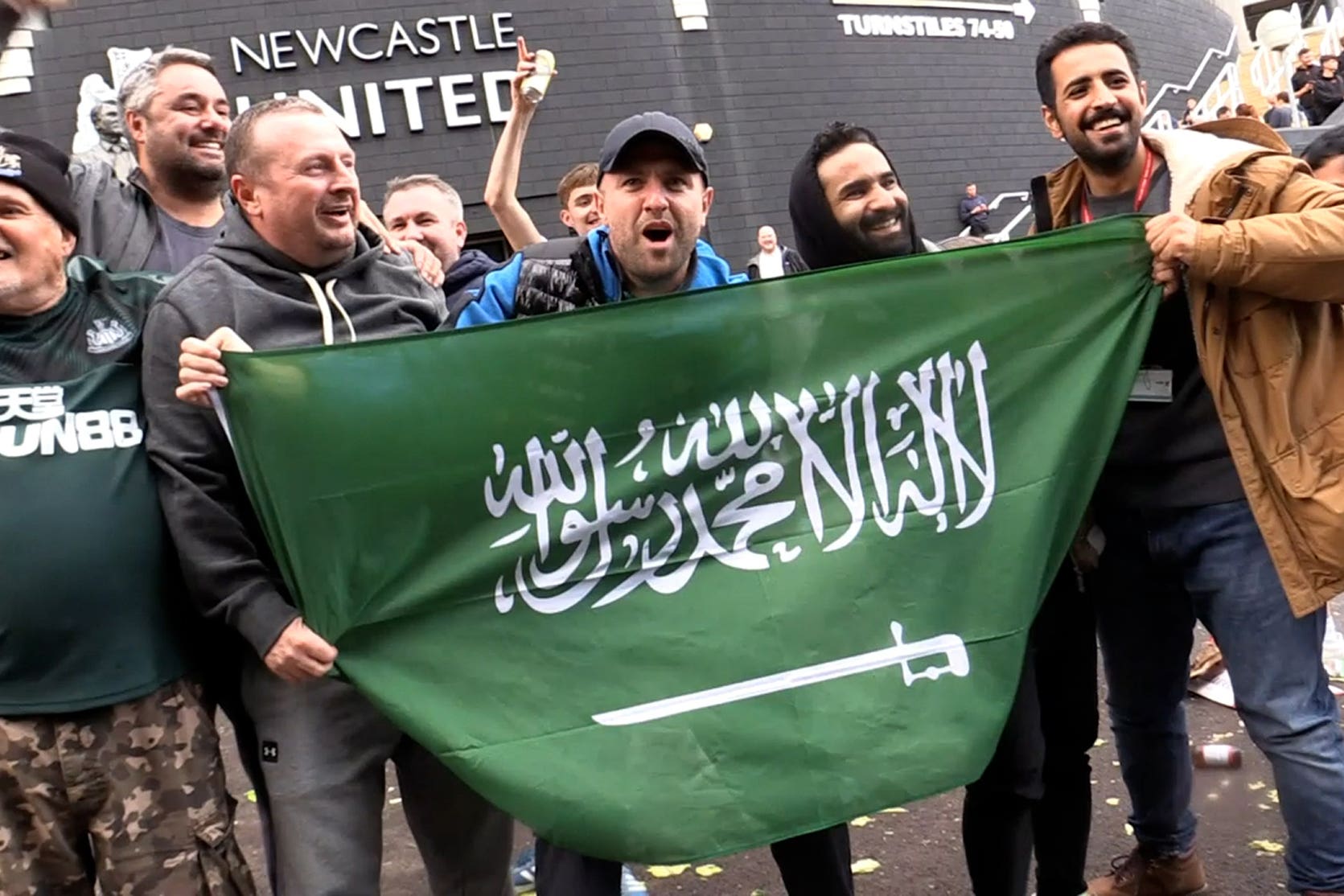Amnesty International criticise ‘glaring omission’ of human rights issues in football’s White Paper
The White Paper published on Thursday has promised checks on owners and directors will be more robust under the new regulator.

Your support helps us to tell the story
From reproductive rights to climate change to Big Tech, The Independent is on the ground when the story is developing. Whether it's investigating the financials of Elon Musk's pro-Trump PAC or producing our latest documentary, 'The A Word', which shines a light on the American women fighting for reproductive rights, we know how important it is to parse out the facts from the messaging.
At such a critical moment in US history, we need reporters on the ground. Your donation allows us to keep sending journalists to speak to both sides of the story.
The Independent is trusted by Americans across the entire political spectrum. And unlike many other quality news outlets, we choose not to lock Americans out of our reporting and analysis with paywalls. We believe quality journalism should be available to everyone, paid for by those who can afford it.
Your support makes all the difference.The Government is guilty of a “glaring omission” for failing to mention human rights issues in its new football White Paper, according to Amnesty International.
The document published on Thursday promised a new independent regulator would perform strengthened owners’ and directors’ tests on those seeking to take control of English professional clubs.
However, it made no explicit mention of consideration being given to individuals or entities linked to human rights abuses.
Amnesty called upon the Premier League to consider Saudi Arabia’s human rights record when the country’s Public Investment Fund bought a controlling stake in Newcastle in 2021, and has repeated it amid a Qatari bid for Manchester United.
Amnesty UK’s chief executive Sacha Deshmukh said: “With growing concern at the prospect of state-linked entities buying their way into English football for sportswashing purposes, it was disappointing that there was no proper consideration given to human rights issues in the White Paper – which seems, to say the least, a glaring omission.
“Football is close to the hearts of many people in this country and there’s real disquiet at the lack of safeguards in the current owners’ and directors’ rules over those linked to human rights violations overseas being able to acquire historic English clubs.
“During the planned period of selective consultation over the regulator role, we hope that the need for ownership rules which are human rights-compliant is accepted and that the remit of a future regulator includes the scrutiny of the human rights record of prospective owners.
“It will still be months if not years before the regulator comes into existence, so in the meantime we’re continuing to call on the Premier League to take the initiative and update its ownership rules to produce a test that can serve as a working model for a new regulator.”
Sports Minister Stuart Andrew responded directly to a question on why the White Paper did not mention human rights by saying: “We will obviously be looking at other regulatory bodies to see what mechanisms they are using.
“That’s the sort of technical detail that we’ll be going through as we get preparing for the legislation.”
Andrew was asked whether the regulator would look at owners with links to states or sovereign wealth funds, but insisted it would not venture into the area of foreign policy, saying that would remain a matter for the Foreign Office.
“This will very much be looking at the individuals who are wanting to buy clubs or who are running clubs,” he said.
The Premier League gave the PIF takeover of Newcastle the green light in October 2021 after receiving legally-binding assurances that the Kingdom of Saudi Arabia would not control the club.
This meant that no one with direct links to the Saudi state was subject to the league’s owners’ and directors’ test. The chairman of the PIF is Crown Prince Mohammed bin Salman.
The new regulator will be able to identify whether it considers someone with a controlling interest in a club has affiliations which make them a ‘politically-exposed person’, and could insert specific conditions into that club’s licence to account for that. It will also use its powers to determine who a club’s ultimate beneficial owner is, if this is unclear.
Sources linked to Sheikh Jassim bin Hamad Al Thani say he is bidding for Manchester United in a private capacity, with no support either from the Qatari state, any sovereign wealth fund or any other private individuals.
He is understood to be completely comfortable about the idea of greater regulation within English football. His main focus – should his takeover bid succeed – is capital expenditure to improve Old Trafford, the club’s training facilities and to regenerate the area around the stadium rather than significantly increasing spending on transfer fees and player wages.
Join our commenting forum
Join thought-provoking conversations, follow other Independent readers and see their replies
Comments